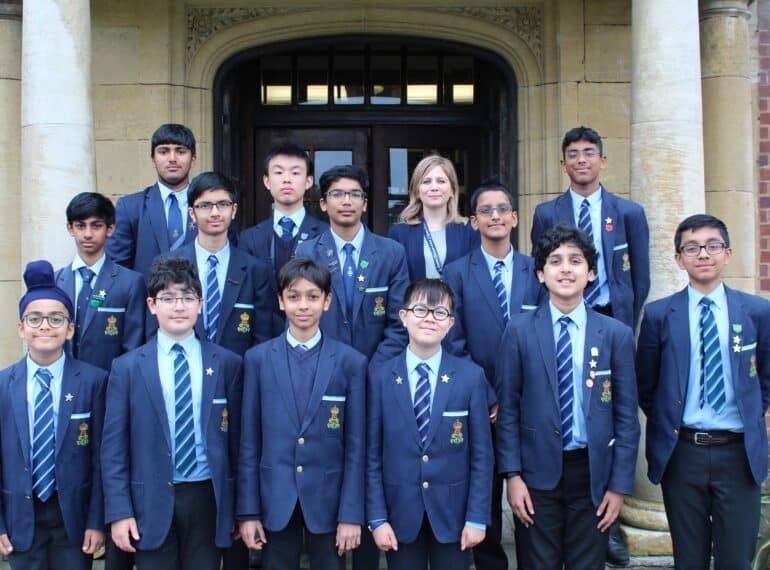
A Year 7 QE boy has won the Greater London prize for German for his age group in a prestigious translation competition.
Saran Anderson took the award for his translation of Grashüpfer (Grasshopper), a poem by the 19th-century poet, writer and engineer, Heinrich Seidel.
Saran was among a group of QE linguists who entered the Anthea Bell Prize for Young Translators – a competition run from The Queen’s College, Oxford, which attracted 16,000 participants from 300 schools nationally. It challenges children to translate a text with precision, creativity and cultural sensitivity.
Head of Languages Helen Shephard congratulated Saran: “He impressed the judges with his flawless rendition of a German poem into English.”
She added: “Our students embraced the challenge wholeheartedly, demonstrating their passion for languages and their commitment to excellence. Their success inspires us to continue to nurture language enthusiasts and celebrate the beauty of words across borders.”
The competition is organised by The Queen’s College Translation Exchange and named in honour of renowned translator Anthea Bell, who specialised in translating children’s literature and is perhaps best known for translating the Asterix comic books from French. She died in 2018, aged 82.
Saran said: “I think everyone should have entered; the benefit is learning the language in a different way – not just translating it. It gives you a little taste of ‘more than the basics’ and, most importantly, is super fun!”
Two other Year 7 entrants, Hardit Gulati and Rachit Banker, also reflected on their experience of taking part.
“It was an exciting competition,” said Hardit, “testing not only our language interpretation skills, but also our creativity and comprehension skills on how to keep the feel of the poem in a different language!”
Rachit added: “Participating in the competition was an absolute thrill; you get to enhance your translation skills, while it also assesses your imagination, creativity and vocabulary skills. It was really exciting to keep the essence and meaning of the poem when translating from one language to another!”
QE boys have enjoyed repeated success in the competition since it was first held in 2020: like Saran, last year, Jason Tao (then in Year 11) and Olly Salter (then in Year 13) were Greater London German winners for their age groups.
- Saran is pictured with other QE entrants in the 2024 competition.

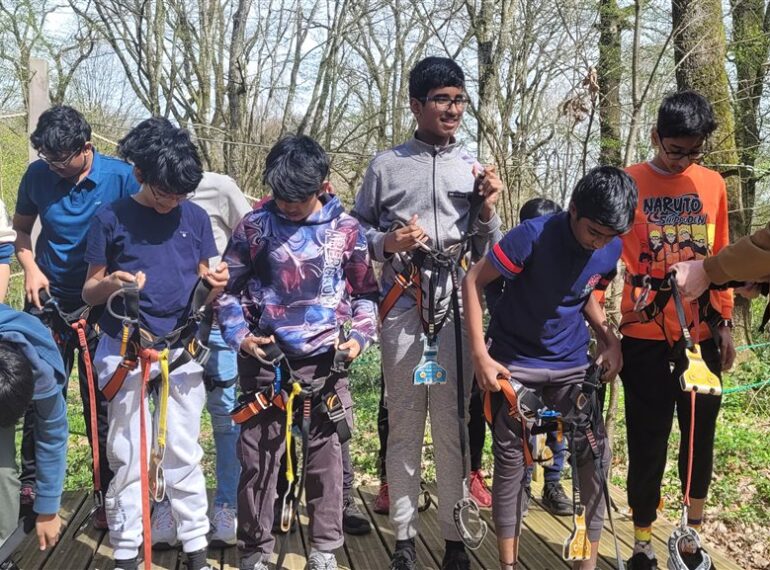
 The group were kept busy with a host of activities during their stay with pupils from QE’s partner school, Collège St Pierre, from the town of Bourg en Bresse, between Lyon and Geneva.
The group were kept busy with a host of activities during their stay with pupils from QE’s partner school, Collège St Pierre, from the town of Bourg en Bresse, between Lyon and Geneva.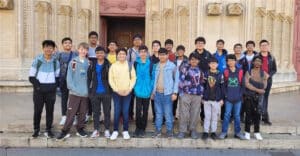 By spending evenings and the weekend of the trip with families, the QE boys were able to build their confidence in French, as well as experiencing a different way of life.
By spending evenings and the weekend of the trip with families, the QE boys were able to build their confidence in French, as well as experiencing a different way of life. The official programme also included:
The official programme also included: Noah’s fellow member of Underne form, Harsh Chavda, said: “I particularly enjoyed going to the market on the last day because it is rare to find such markets here in London. There were so many different shops – selling cheese, olives, bread, desserts, Chinese food, clothes and so much more! Some of us asked the owner of the cheese store to give us his strongest cheese, and we all tasted some. It was so strong and for me, disgusting!
Noah’s fellow member of Underne form, Harsh Chavda, said: “I particularly enjoyed going to the market on the last day because it is rare to find such markets here in London. There were so many different shops – selling cheese, olives, bread, desserts, Chinese food, clothes and so much more! Some of us asked the owner of the cheese store to give us his strongest cheese, and we all tasted some. It was so strong and for me, disgusting!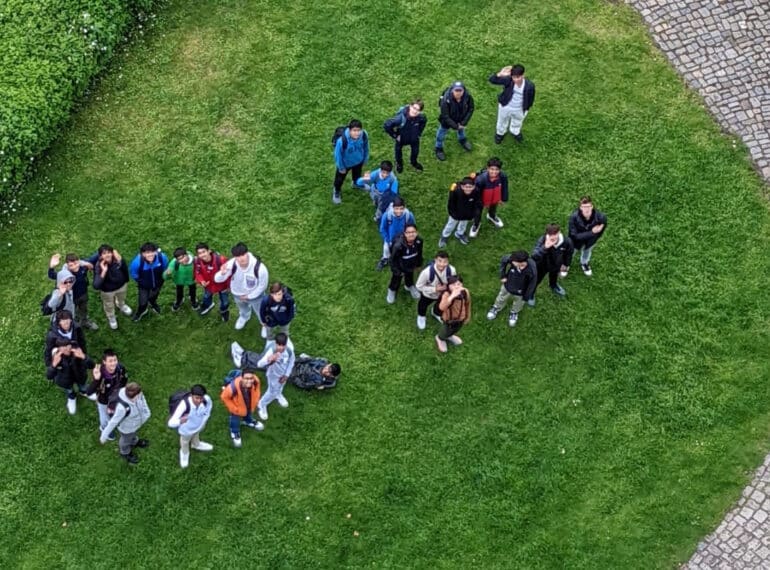
 The Year 9 trip to the north German city of Bielefeld saw the QE party enjoy the high life at one of the world’s tallest and fastest roller-coasters, at a tree-climbing adventure park and at the mediaeval Sparrenberg Castle (known locally as the Sparrenburg), which towers over the city centre.
The Year 9 trip to the north German city of Bielefeld saw the QE party enjoy the high life at one of the world’s tallest and fastest roller-coasters, at a tree-climbing adventure park and at the mediaeval Sparrenberg Castle (known locally as the Sparrenburg), which towers over the city centre.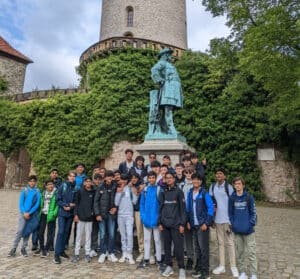 The exchange, which began in 2005, is with a co-educational grammar school (or ‘Gymnasium’), Friedrich von Bodelschwingh Gymnasium in Bielefeld. The school is named after a German pastor, theologian and public health advocate, who ran large homes for people with learning difficulties and refused to comply with the Nazis’ euthanasia policies.
The exchange, which began in 2005, is with a co-educational grammar school (or ‘Gymnasium’), Friedrich von Bodelschwingh Gymnasium in Bielefeld. The school is named after a German pastor, theologian and public health advocate, who ran large homes for people with learning difficulties and refused to comply with the Nazis’ euthanasia policies.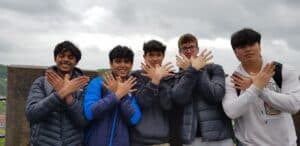 Music: the boys created their own digital music using GarageBand software. One of the party, Peter Atanasov, said: “We made our own beats on iPads to accompany a melody and learnt about new music genres as well.”
Music: the boys created their own digital music using GarageBand software. One of the party, Peter Atanasov, said: “We made our own beats on iPads to accompany a melody and learnt about new music genres as well.”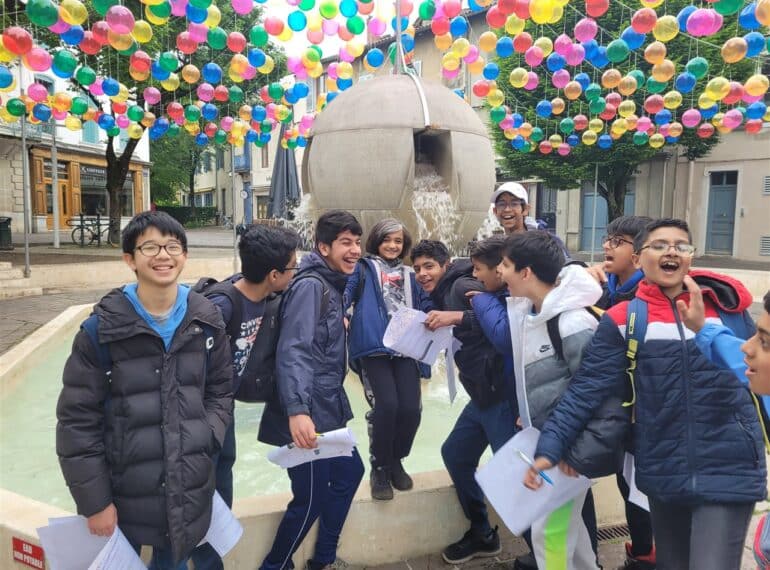
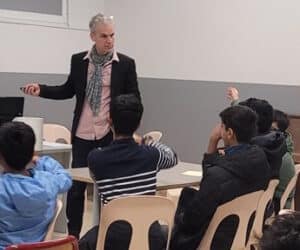 Twenty-one boys headed to Bourg-en-Bresse this month, a town which lies northeast of Lyon at the foot of the Jura Mountains. Their exchange partners came to Barnet last term.
Twenty-one boys headed to Bourg-en-Bresse this month, a town which lies northeast of Lyon at the foot of the Jura Mountains. Their exchange partners came to Barnet last term. The first exchange with Bourg-en-Bresse was in the 2010 Summer Term, when 13 pupils from Years 8 and 9 visited Collège St-Pierre, the alma mater of a QE French teacher of the time, Océane Jullien, who now teaches in Thailand.
The first exchange with Bourg-en-Bresse was in the 2010 Summer Term, when 13 pupils from Years 8 and 9 visited Collège St-Pierre, the alma mater of a QE French teacher of the time, Océane Jullien, who now teaches in Thailand. Visit to the local ‘parc des oiseaux’ (bird park) with their partners
Visit to the local ‘parc des oiseaux’ (bird park) with their partners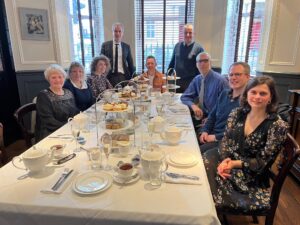 Fellow member of Harrisons’ House, Aaryav Sharma, said some of his most memorable moments took place above ground level: “We had a great afternoon doing accrobranche, which is a treetop adventure activity,” adding that he and two friends all “managed the really difficult black run, which was great!”
Fellow member of Harrisons’ House, Aaryav Sharma, said some of his most memorable moments took place above ground level: “We had a great afternoon doing accrobranche, which is a treetop adventure activity,” adding that he and two friends all “managed the really difficult black run, which was great!”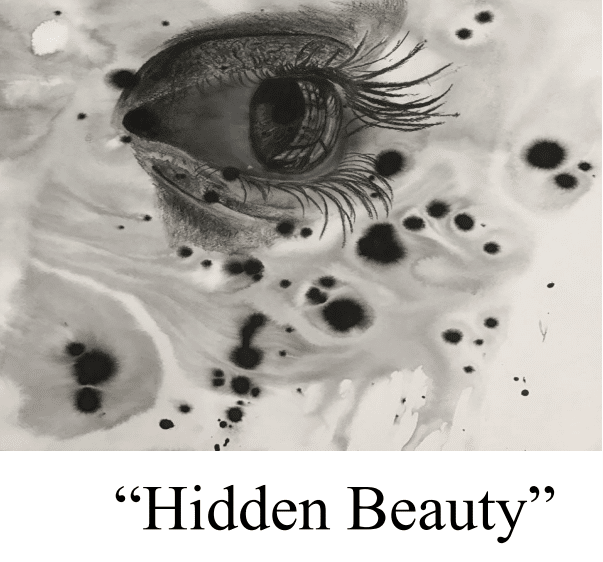
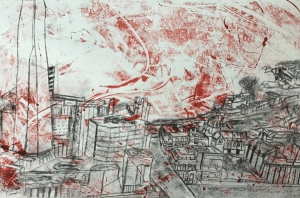
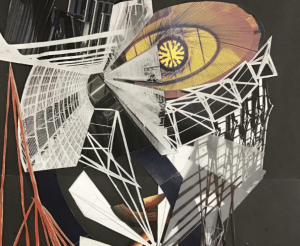 Six artists’ work is featured, including the front-cover illustration by Year 13’s Dylan Domb, pictured top, and pieces by Gabriel Gulliford (also Year 13), above right, and Year 12’s Pratham Bhavsar, left.
Six artists’ work is featured, including the front-cover illustration by Year 13’s Dylan Domb, pictured top, and pieces by Gabriel Gulliford (also Year 13), above right, and Year 12’s Pratham Bhavsar, left.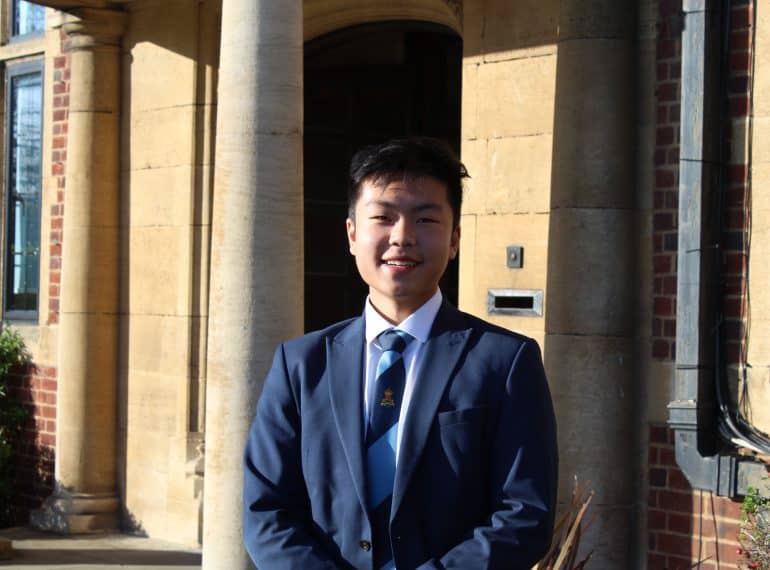
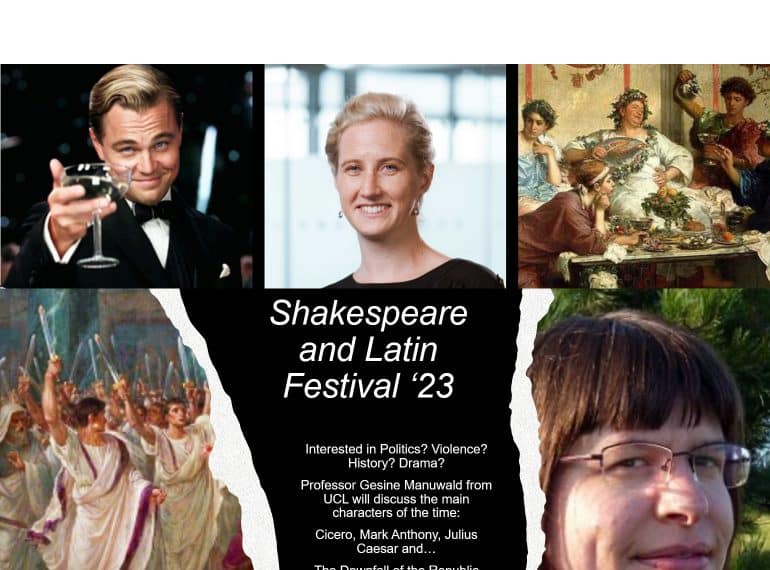
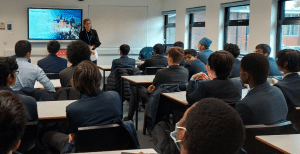 The School re-introduced Latin as a full curriculum subject in 2012, and all boys opting to study more than one language at GCSE are invited to take classes in Ancient Greek. The announcement follows QE’s inaugural Shakespeare and Latin Festival, which got under way towards the end of the Autumn Term.
The School re-introduced Latin as a full curriculum subject in 2012, and all boys opting to study more than one language at GCSE are invited to take classes in Ancient Greek. The announcement follows QE’s inaugural Shakespeare and Latin Festival, which got under way towards the end of the Autumn Term.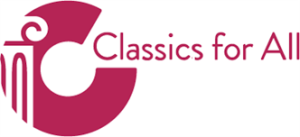 The announcement of QE’s new role is one of a series of recent announcements from external organisations which have further underlined QE’s academic credentials. Earlier this month, the influential Sunday Times Parent Power survey confirmed that this year’s QE A-level results were the best of any state school in the country. Before that, Schools Minister Nick Gibb wrote to Mr Enright to congratulate the School on its “leadership in continuing to promote the teaching of languages”. All 191 boys in last year’s Year 11 were entered for at least one modern foreign language GCSE – a 100% rate which puts QE “amongst the top schools in England for the proportion of pupils studying a language at GCSE”, Mr Gibb wrote.
The announcement of QE’s new role is one of a series of recent announcements from external organisations which have further underlined QE’s academic credentials. Earlier this month, the influential Sunday Times Parent Power survey confirmed that this year’s QE A-level results were the best of any state school in the country. Before that, Schools Minister Nick Gibb wrote to Mr Enright to congratulate the School on its “leadership in continuing to promote the teaching of languages”. All 191 boys in last year’s Year 11 were entered for at least one modern foreign language GCSE – a 100% rate which puts QE “amongst the top schools in England for the proportion of pupils studying a language at GCSE”, Mr Gibb wrote.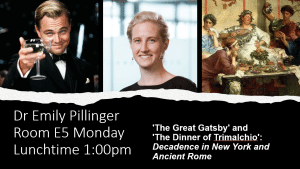 In her lecture delivered at the School, Dr Emily Pillinger, Senior Lecturer in Latin Language and Literature at King’s, looked at Decadence in New York and Ancient Rome. Her well-attended talk was open to senior Latinists and English Literature GCSE and A-level students. “Dr Pillinger drew out the links between Baz Luhrmann’s film of The Great Gatsby, Fitzgerald’s novel and the ancient Latin text, The Feast of Trimalchio,” said Mr Bonham-Carter.
In her lecture delivered at the School, Dr Emily Pillinger, Senior Lecturer in Latin Language and Literature at King’s, looked at Decadence in New York and Ancient Rome. Her well-attended talk was open to senior Latinists and English Literature GCSE and A-level students. “Dr Pillinger drew out the links between Baz Luhrmann’s film of The Great Gatsby, Fitzgerald’s novel and the ancient Latin text, The Feast of Trimalchio,” said Mr Bonham-Carter.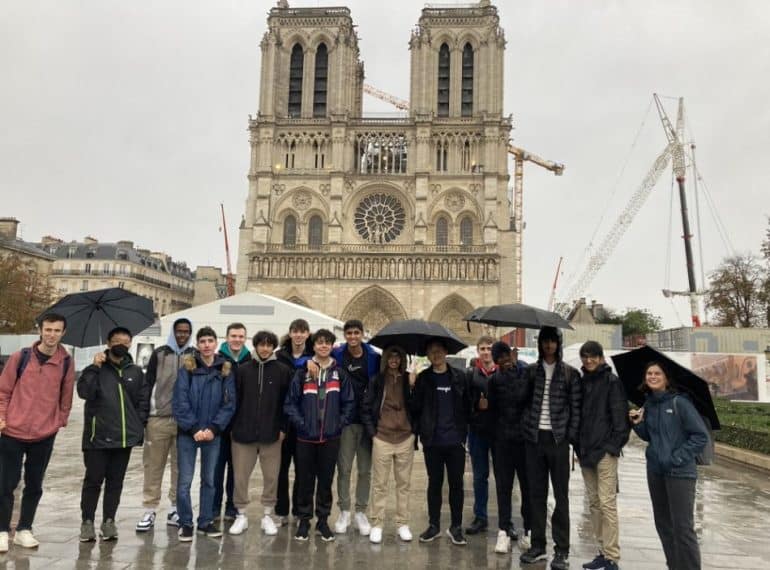
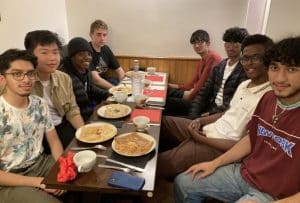 Moving around on public transport, the boys took in the sights and used local specialist guides who spoke to them in French.
Moving around on public transport, the boys took in the sights and used local specialist guides who spoke to them in French. 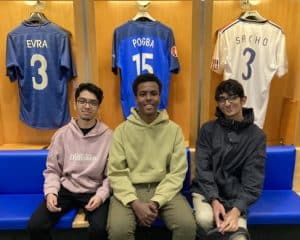 Amongst the highlights for the boys were the evening boat trip and the tour of the Stade de France. Shuaib Adam, of Year 12, said: “Seeing the Eiffel Tower in person on the first night had me in awe, let alone a cruise along the River Seine watching the Eiffel Tower light show.”
Amongst the highlights for the boys were the evening boat trip and the tour of the Stade de France. Shuaib Adam, of Year 12, said: “Seeing the Eiffel Tower in person on the first night had me in awe, let alone a cruise along the River Seine watching the Eiffel Tower light show.”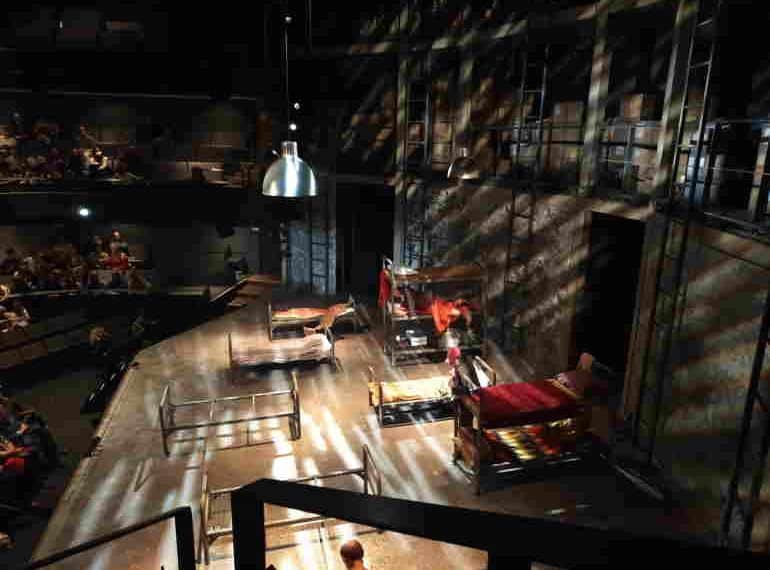
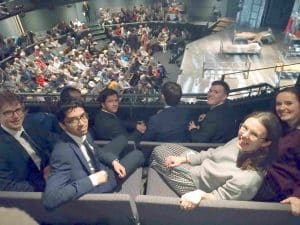 The group of Year 12 and Year 13 German students took the train to Kingston to watch The Caucasian Chalk Circle (Der kaukasische Kreidekreis) in the town’s Rose Theatre.
The group of Year 12 and Year 13 German students took the train to Kingston to watch The Caucasian Chalk Circle (Der kaukasische Kreidekreis) in the town’s Rose Theatre.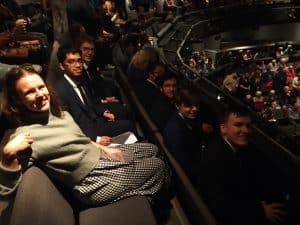 The visit reinforced the boys’ Sixth Form German studies. The Sixth Form course covers Berlin and its cultural scene. Brecht lived and worked in East Berlin for a large part of his career, although The Caucasian Chalk Circle was written in the United States, where Brecht was living in exile during the war.
The visit reinforced the boys’ Sixth Form German studies. The Sixth Form course covers Berlin and its cultural scene. Brecht lived and worked in East Berlin for a large part of his career, although The Caucasian Chalk Circle was written in the United States, where Brecht was living in exile during the war.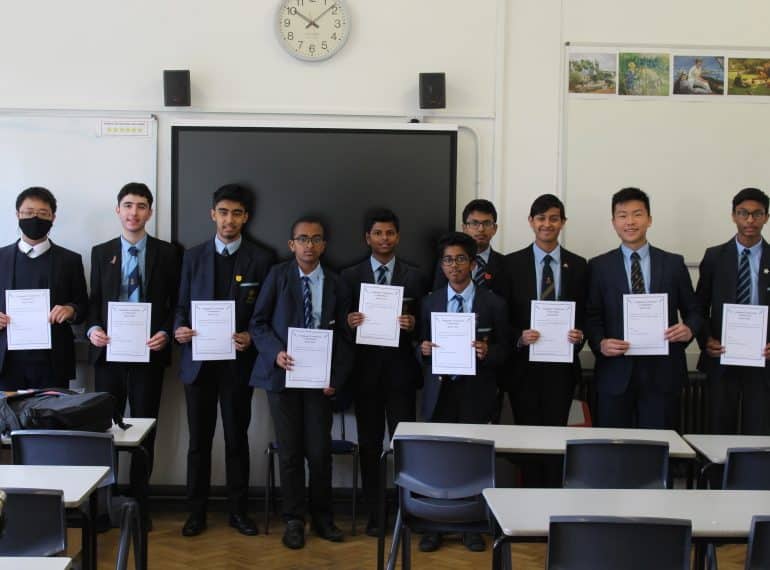
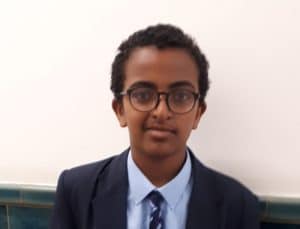 Year 7 pupil Jonas Dawit took second prize nationally for French in his age group, while Year 11’s Arjun Patel was the winner for Greater London for German. Olly Salter, of Year 12, also won a regional commendation, again for German.
Year 7 pupil Jonas Dawit took second prize nationally for French in his age group, while Year 11’s Arjun Patel was the winner for Greater London for German. Olly Salter, of Year 12, also won a regional commendation, again for German.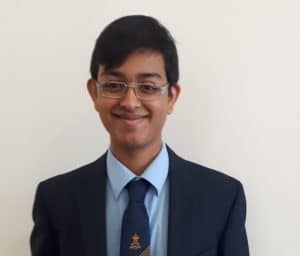 It was the second consecutive year that QE has entered the competition, which is named after an acclaimed English literary translator who died in 2018.
It was the second consecutive year that QE has entered the competition, which is named after an acclaimed English literary translator who died in 2018.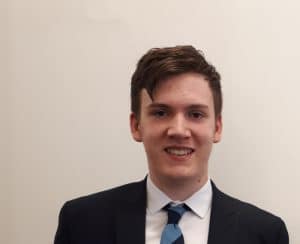 After learning of his commendation, Olly reflected on the experience: “’Entering the Anthea Bell translation competition was immensely rewarding. The need to think outside of the box – to ensure not only the meaning, but also the tone, of the text was preserved – was exciting and something I will carry with me into my future study of languages and translation. I am so glad that I took part.”
After learning of his commendation, Olly reflected on the experience: “’Entering the Anthea Bell translation competition was immensely rewarding. The need to think outside of the box – to ensure not only the meaning, but also the tone, of the text was preserved – was exciting and something I will carry with me into my future study of languages and translation. I am so glad that I took part.”